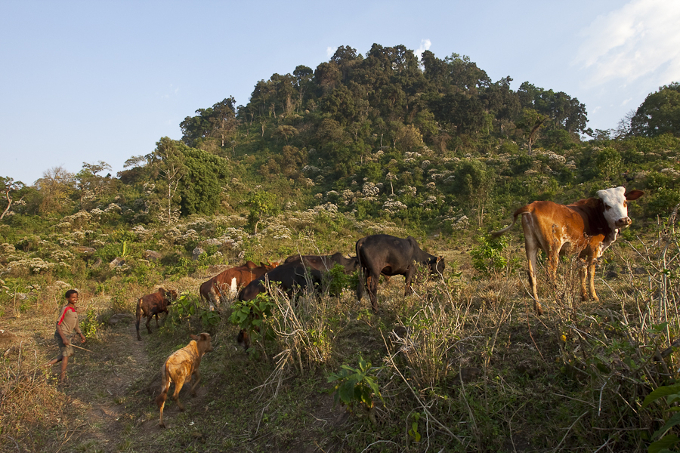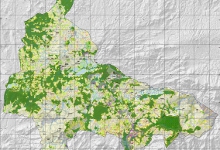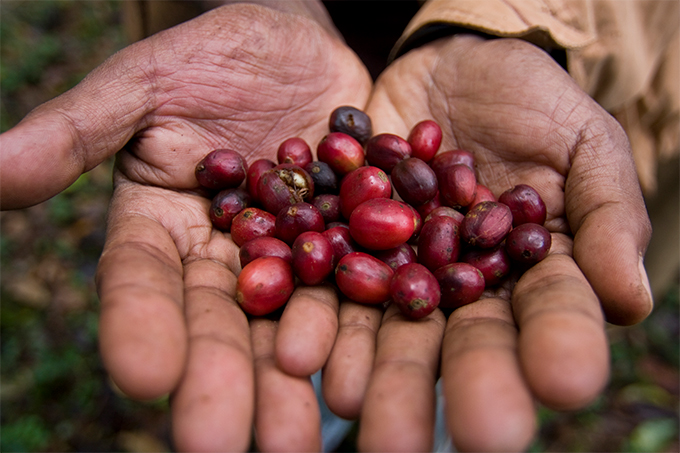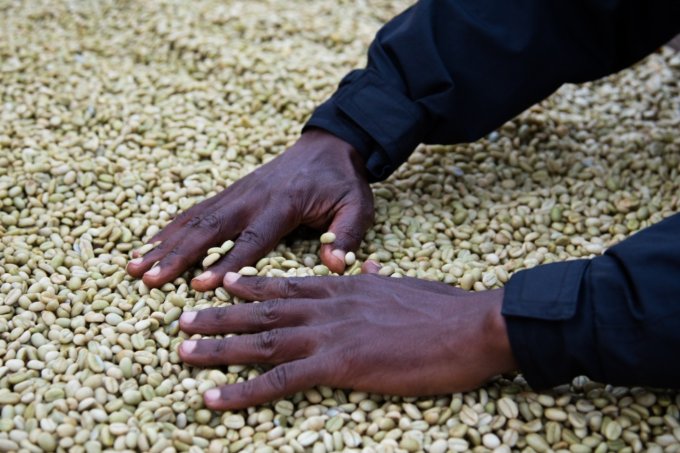Forest loss in Kafa
Deforestation damages the ecosystem
Only 40 years ago, approximately 40 percent of the Ethiopian land surface was forested; today, only 2.7 percent of that remains. FAO estimates put the annual nation-wide deforestation rate between 1990 and 2005 at 140,000 hectares. These figures make clear how rapidly the alarming disappearance of Ethiopia’s forests is proceeding. According to the U.N., Ethiopia could be completely deforested by 2020.
Forest fragmentation
The peoples' high dependence on subsistence agriculture (enset bananas, coffee, maize and teff) forces them to clear areas of the forest. As a result of the local population's dependence on wood and conversion of the forest to arable land, biodiversity is being dramatically reduced. The soil fertility in the mountain cloud forests is limited to the thick humus layer, which is 20 cm thick on average. It is maintained almost exclusively by a constant recycling process between the forest floor and forest vegetation.
The ongoing downgrading of agrarian areas' quality leads to further encroachment into forest areas. The expansion of infrastructure and commercial agriculture are viewed as major reasons for deforestation and forest degradation as well.
The status quo, with missing land titles and uncertain ownership structures, and associated lack of incentives to cultivate land sustainably, makes it complicated to control forest clearings. The lack of knowledge and finance also inhibit the improvement of agrarian practices and energy-efficiency. Although laws and regulations for forest use and protection do exist in Ethiopia, their effective implementation is prevented by the responsible authority’s lack of means. This also impacts on the Protected Areas System in Ethiopia, which accounts for approximately 14 percent of the country’s land-surface and still protects large proportions of intact forest.
Water circle disturbed
The loss of the afromontane cloud forest and the degradation of pasture and agricultural areas have various negative effects, including increased surface run-off and soil erosion. That may lead to floodings and has negative consequences for soil fertility and water quality through sedimentation. Groundwater won't be recharged to an adequate amount and negative changes to the microclimate accumulate. Lowered and irregular streaming patterns have a serious impact on the hydroelectric dam downriver, which is of great importance for Ethiopia, and place further stress on the country’s electricity supply. In the most direct way deforestation threatens the long-term water supply of the local population.
Climate change on the run
Global circulation models show an average increase in mean monthly temperatures in the Kafa Region of up to 3°C by 2060, and a heavy increase in precipitation and surface run-off in certain months. There are also rises in ground-surface temperature and more frequent droughts induced by global climate change.
Some case-studies of Ethiopia and other sub-Saharan states have modeled the interaction of climate change, changes in land use, deforestation and surface run-off, as well as groundwater recharge in catchment areas. It became apparent that rising temperatures increase evapotranspiration and in so doing reduce groundwater recharge, whilst the increase in heavy rainfalls markedly increases surface run-off and groundwater recharge.
project overview
Kafa Biosphere Reserve is challenged by the lack of sustainable employment and innovation for green development and adaptation to the impacts of climate change. The project aims at structuring the up to now non-commercialised garden coffee value chain. more →
topic Overview
NABU promotes sustainable regional development worldwide. Our international projects always include income-generating activities, which comprehensively address all three dimensions of sustainability - balancing economy, ecology and social equality. more →




